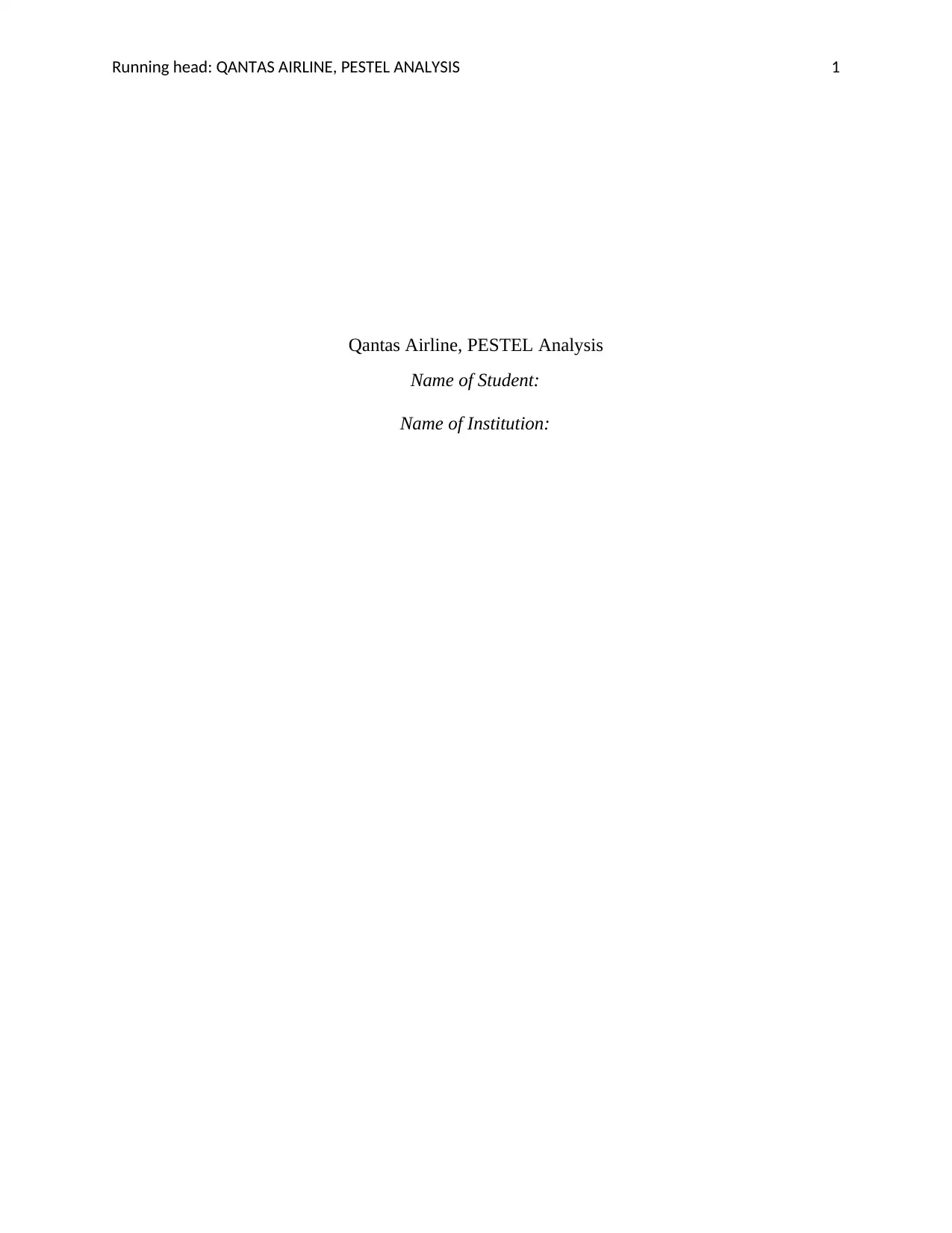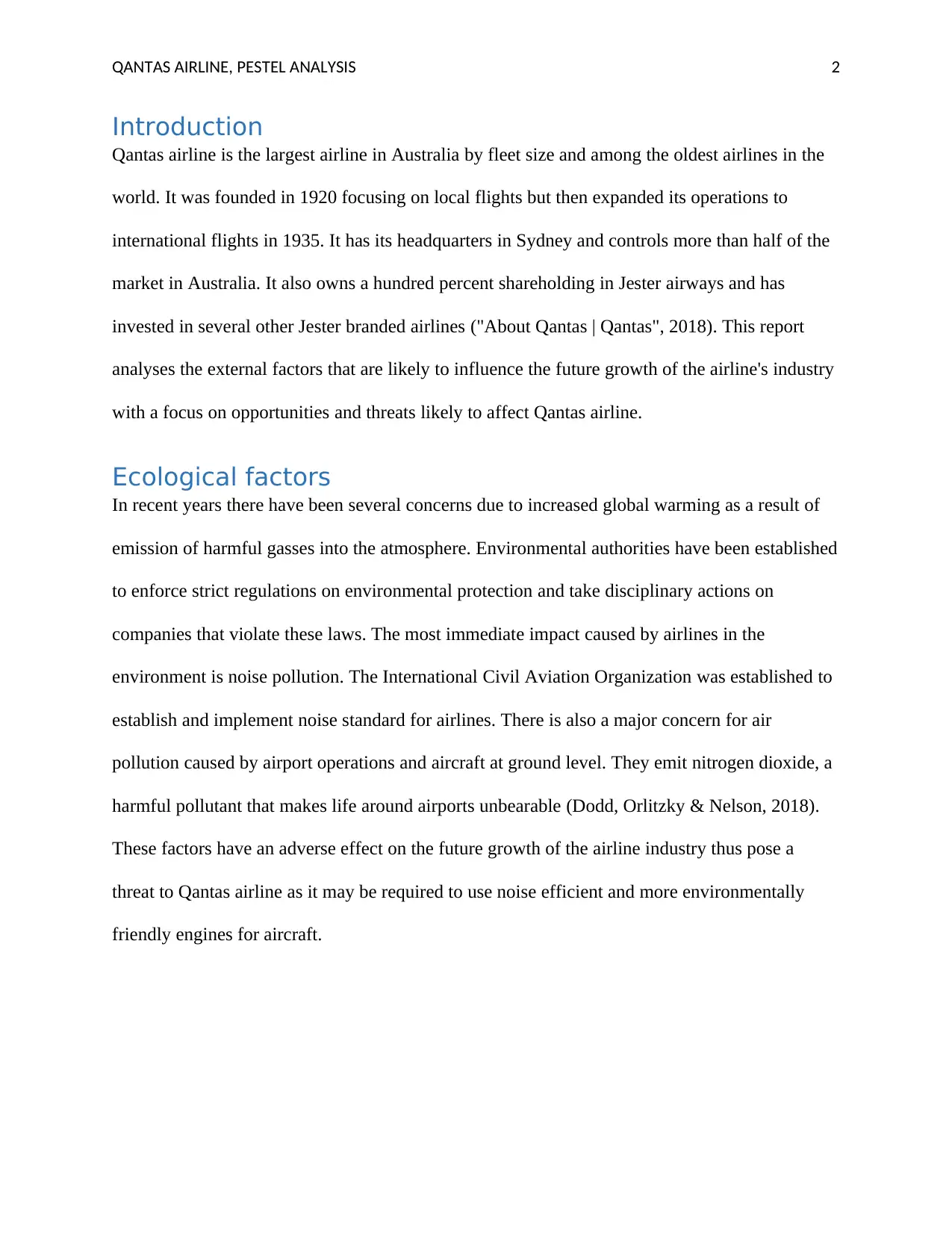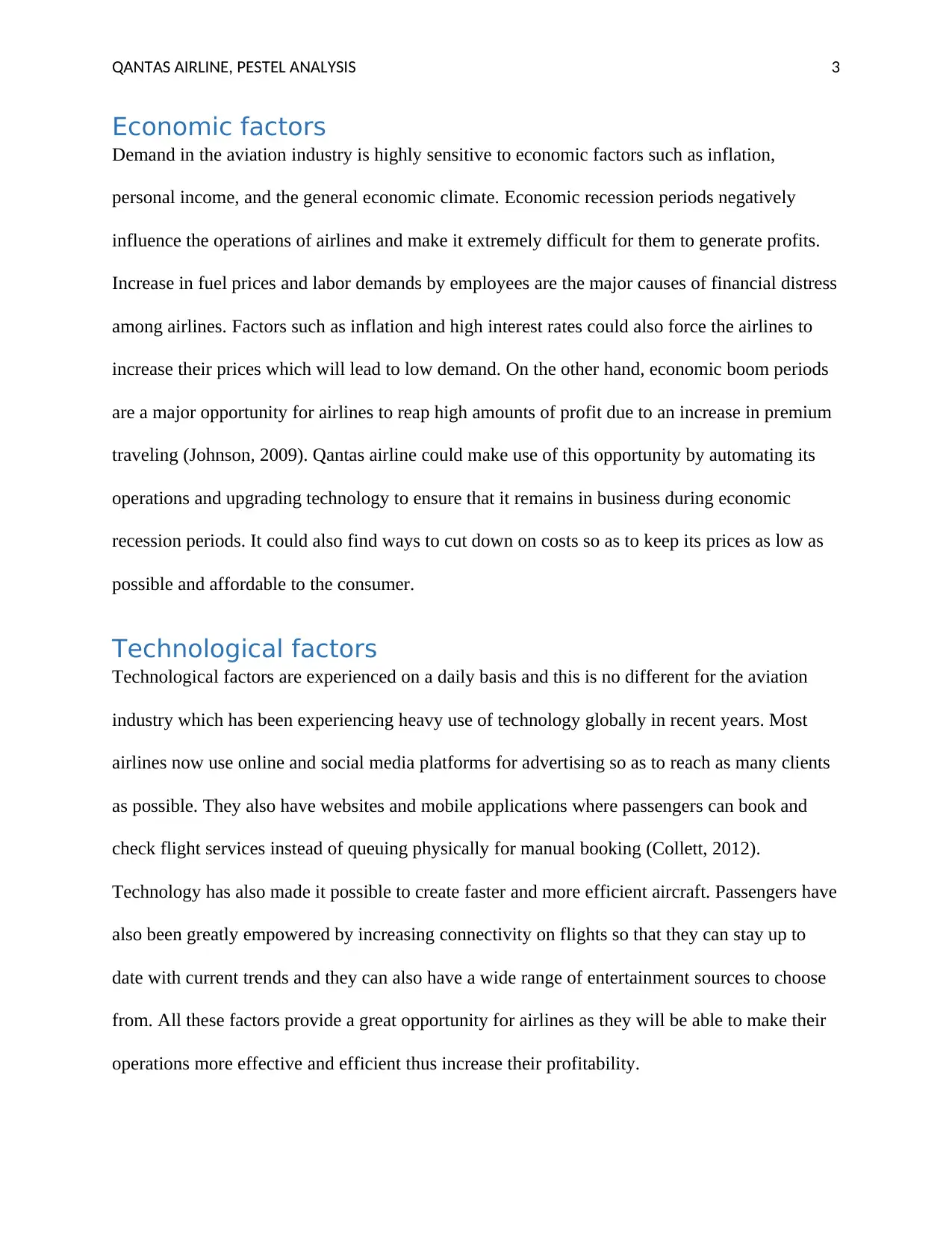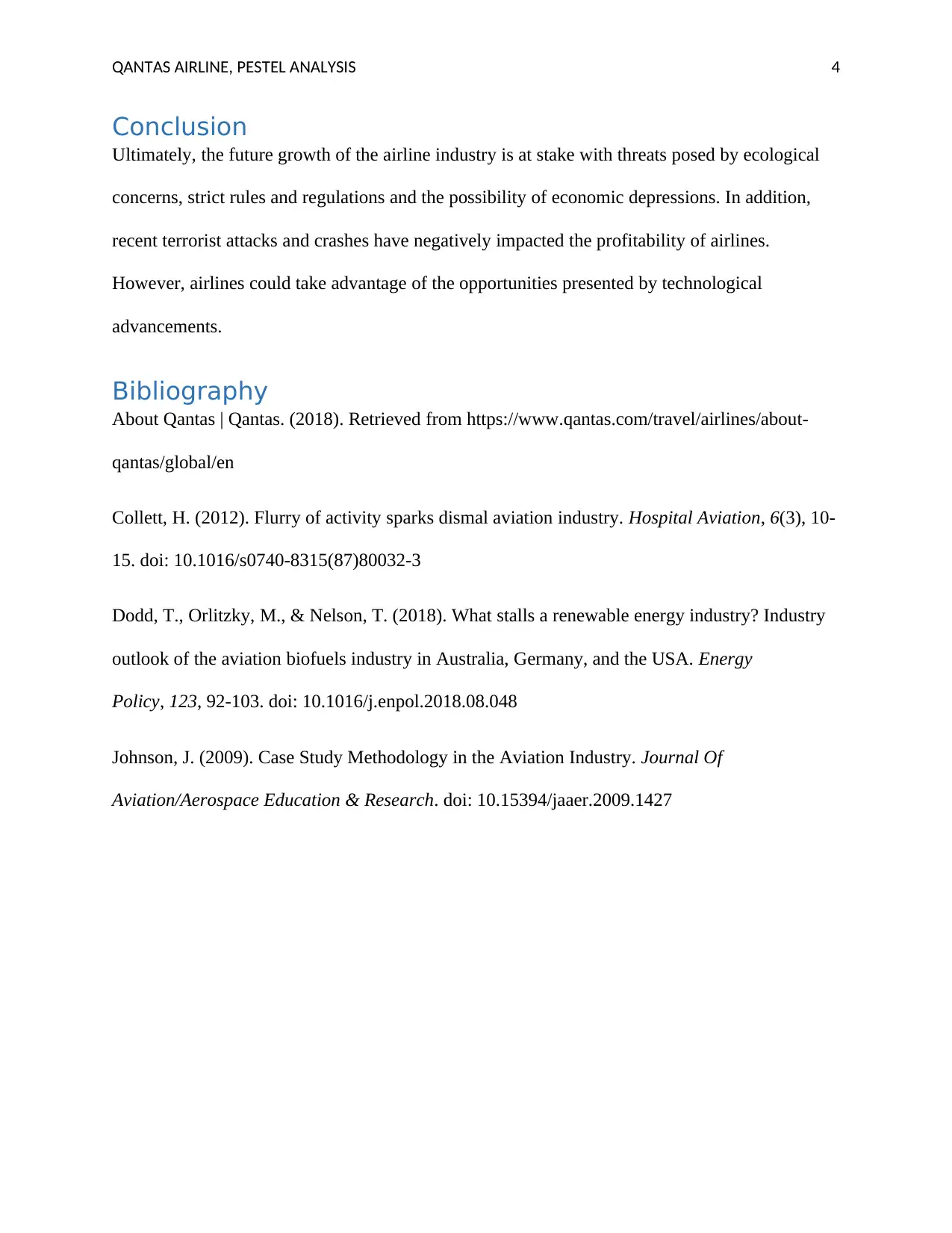Qantas Airline: PESTEL Analysis of Future Growth Factors
VerifiedAdded on 2023/05/28
|4
|836
|198
Report
AI Summary
This report provides a PESTEL analysis of Qantas Airline, examining the external factors that influence its future growth. The introduction highlights Qantas's history and market position, setting the stage for a detailed examination of ecological, economic, and technological factors. The analysis explores how environmental concerns, such as noise and air pollution, pose threats to the airline. It also investigates economic factors like inflation, fuel prices, and the impact of economic cycles on demand. Furthermore, the report discusses the role of technological advancements, including online platforms and more efficient aircraft, as opportunities for Qantas. The conclusion emphasizes the challenges and opportunities within the aviation industry, summarizing the impact of these factors on the airline's profitability and future prospects. The report utilizes credible sources to support its analysis.
1 out of 4











![[object Object]](/_next/static/media/star-bottom.7253800d.svg)